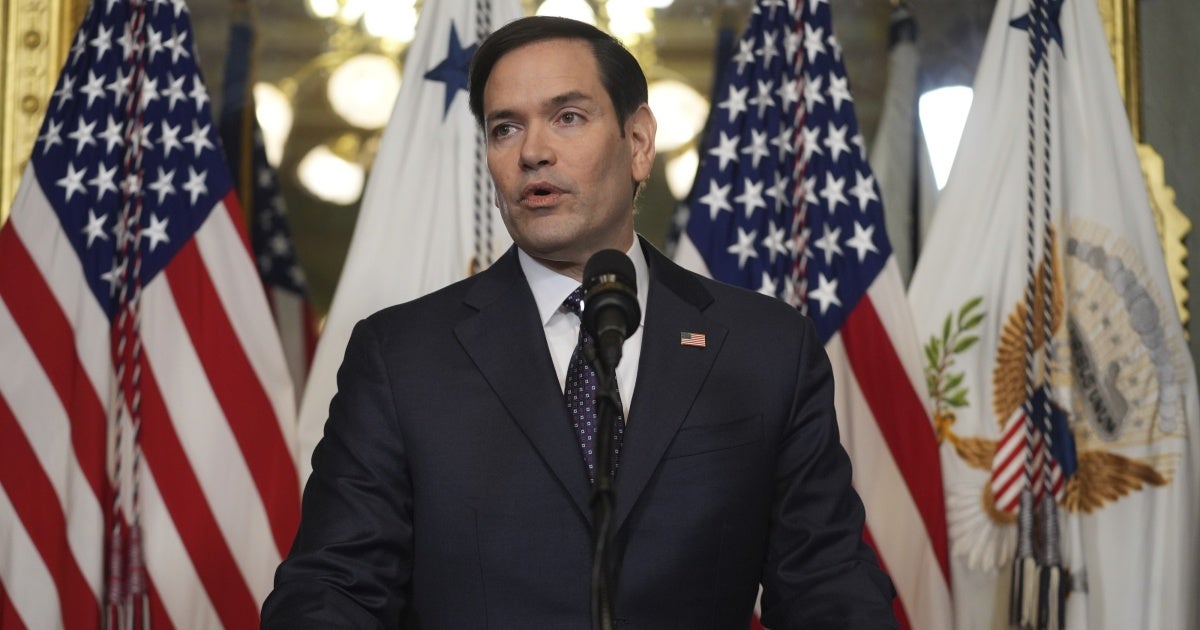
US Foreign Policy Faces Human Rights Role Threat
The Trump administration’s new US State Department structure may further hamstring rights and justice-related work, with programming already decimated by foreign aid cuts, Human Rights Watch said today. The new structure eliminates several human rights-focused offices and senior positions.
On April 22, 2025, US Secretary of State Marco Rubio announced a “comprehensive reorganization plan” with the goal of aligning with the president’s “America First foreign policy.” The new structure appears to disperse at least some of the functions of several eliminated offices throughout regional bureaus and elsewhere. Human Rights Watch is concerned that eliminating these offices signals eliminating human rights as a priority in US foreign policy.
“No US administration in modern history has lived up to its stated human rights ideals and each has contributed to human rights abuses somewhere in the world,” said Sarah Yager, Washington director at Human Rights Watch, “But the State Department has consistently made human rights a relevant part of US diplomacy, provided critical funding to human rights defenders, promoted independent media, championed some core women’s rights issues, and supported justice for victims of atrocity crimes.”
Those eliminated include the Office of Global Women’s Issues as well as the Office of Global Criminal Justice and its ambassador-at-large. The Office to Monitor and Combat Trafficking in Persons (TIP) is slated to merge into the Bureau of Population, Refugees, and Migration (PRM).
Concerned members of Congress, which authorized and appropriated funds for most of the programs now being dismantled, should pressure Secretary Rubio to reverse course and preserve initiatives that until recently had bipartisan support, including from Rubio himself when he served in the US Senate.
The administration has not explained whether and how work on crucial human rights issues will continue, or how staff working on them will be able to influence foreign policy decisions within the new structure. Human Rights Watch is concerned that human rights will no longer be of meaningful or positive policy relevance given other Trump administration actions that have harmed human rights. These included gutting US foreign assistance, which terminated thousands of programs that supported human rights defenders and independent media, and many that provided life-saving humanitarian assistance.
The reorganization creates a new Office of the Director for Foreign Assistance and Human Rights, which in a post on Substack, Secretary Rubio said will be charged with returning to the “original mission of advancing human rights and religious freedom.” Contained within that office will be a Bureau of Democracy, Human Rights, and Labor (though a previous version of the organizational chart renamed this the Bureau of Democracy, Human Rights, and Religious Freedom) and the Bureau of Populations, Refugees, and Migration. It is unclear whether they will keep their full range of functions after the reorganization and the reported impending staff cuts of 15 percent across the department.
The same uncertainty looms over other rights-oriented foreign policy work. Some functions of the Office of Global Criminal Justice, for example, are expected to be moved to the Office of the Legal Adviser at the State Department, former government officials familiar with the reorganization told Human Rights Watch. But this office does not have a policymaking role. The specialized expertise of the Office of Global Criminal Justice has been key to its decades-long efforts to advance justice for atrocity crimes in US policy and diplomacy, Human Rights Watch said.
The Trump administration has already been scaling back efforts to promote democracy in its foreign policy since the inauguration and, in some cases, has undermined global human rights efforts through its actions. The Trump administration withdrew from the United Nations Human Rights Council and from a multinational effort to investigate Russian war crimes, and imposed sanctions against the prosecutor of the International Criminal Court. It has also rejoined the Geneva Consensus Declaration, an international document of principles that emphasizes opposition to abortion.
The State Department has eliminated offices and posts working on reproductive health issues; the rights of lesbian, gay, bisexual, and transgender (LGBT) people; and internal efforts to promote diversity, equity, and inclusion. The administration ended access to the US asylum process at the southern border and suspended all refugee resettlement, with the exception of white Afrikaners, underscoring fears of a broad shift toward a racist immigration policy. The State Department is also reportedly making sweeping changes to its annual human rights report, expected to be published in May, removing key sections such as LGBT rights, freedom of expression and assembly, and women’s rights.
During the rollout of the State Department reorganization plan on April 22, Secretary Rubio criticized the Bureau of Democracy, Human Rights, and Labor as “a platform for left-wing activists to wage vendettas against ‘anti-woke’ leaders in nations such as Poland, Hungary, and Brazil, and to transform their hatred of Israel into concrete policies such as arms embargoes.” He also claimed that the Bureau of Populations, Refugees, and Migration “facilitated mass migration around the world, including the invasion on our southern border,” echoing President Donald Trump’s mischaracterization of immigration issues.
Secretary Rubio’s apparent distrust of two bureaus that protect and promote human rights globally raises questions about how the administration will shape these bureaus’ programs, Human Rights Watch said.
“As a senator, Secretary Rubio championed several US initiatives supporting democracy and human rights, but now he’s removing human rights from the senior levels of decision-making about US foreign policy,” Yager said. “The US Congress should not allow this to happen.”
https://www.hrw.org/news/2025/04/29/us-human-rights-role-foreign-policy-risk


